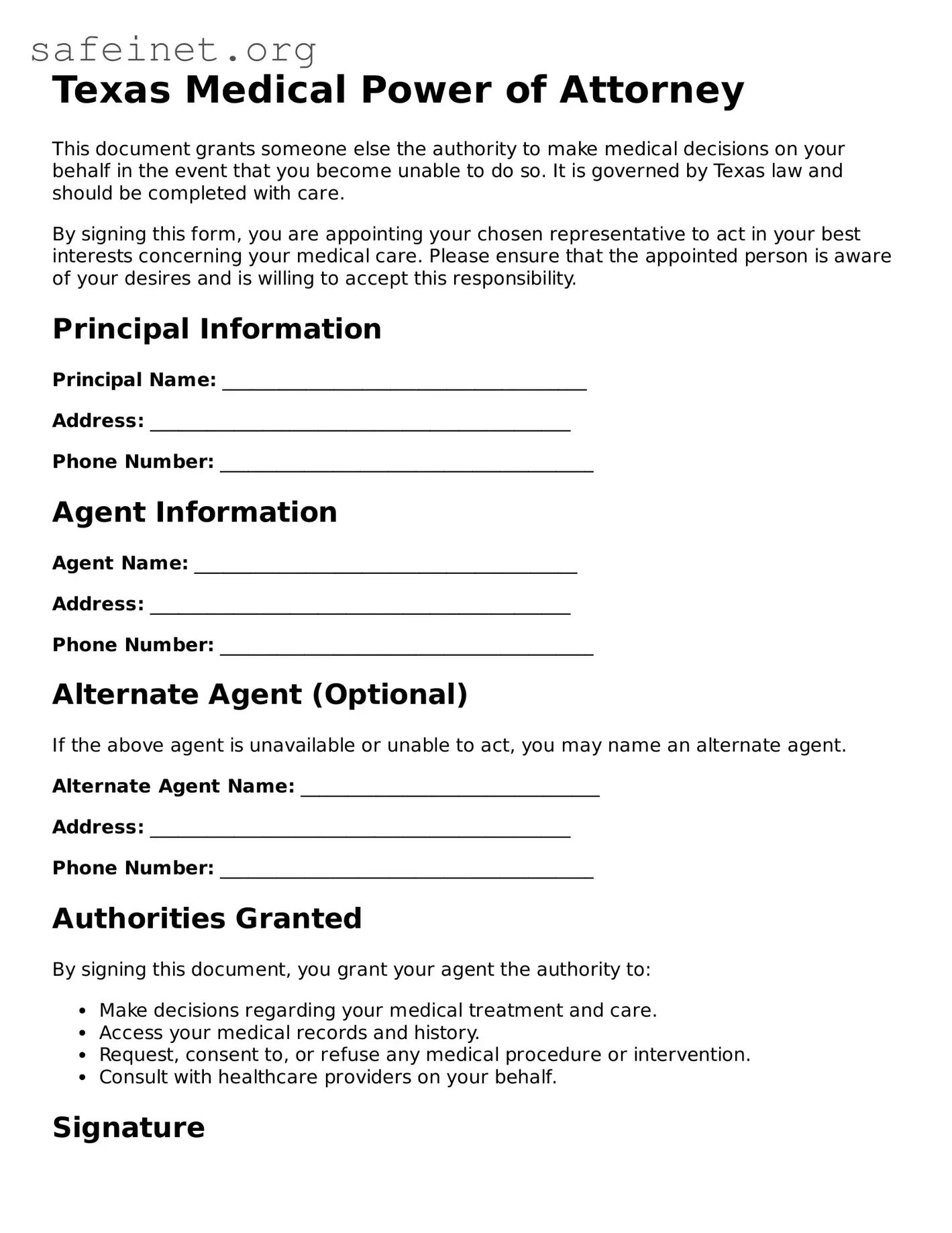Texas Medical Power of Attorney
This document grants someone else the authority to make medical decisions on your behalf in the event that you become unable to do so. It is governed by Texas law and should be completed with care.
By signing this form, you are appointing your chosen representative to act in your best interests concerning your medical care. Please ensure that the appointed person is aware of your desires and is willing to accept this responsibility.
Principal Information
Principal Name: _______________________________________
Address: _____________________________________________
Phone Number: ________________________________________
Agent Information
Agent Name: _________________________________________
Address: _____________________________________________
Phone Number: ________________________________________
Alternate Agent (Optional)
If the above agent is unavailable or unable to act, you may name an alternate agent.
Alternate Agent Name: ________________________________
Address: _____________________________________________
Phone Number: ________________________________________
Authorities Granted
By signing this document, you grant your agent the authority to:
- Make decisions regarding your medical treatment and care.
- Access your medical records and history.
- Request, consent to, or refuse any medical procedure or intervention.
- Consult with healthcare providers on your behalf.
Signature
By signing below, you acknowledge that you understand the contents of this document and its implications.
Principal Signature: _______________________________
Date: _____________________________________________
Agent Signature: ____________________________________
Date: _____________________________________________
Witnesses
This document should be signed in the presence of two witnesses. Each witness must be at least 18 years old and cannot be your agent or related to you by blood or marriage.
- Witness 1 Name: ________________________________
- Witness 1 Signature: ___________________________
- Date: _____________________________________________
- Witness 2 Name: ________________________________
- Witness 2 Signature: ___________________________
- Date: _____________________________________________
